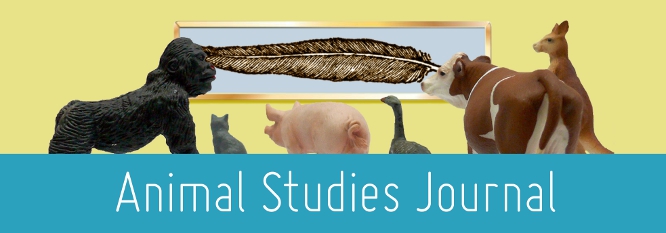Home > assh > ASJ > Vol. 3 (2014) > No. 2

Abstract
This piece seeks to extend Jacques Derrida’s and Cary Wolfe’s explorations of posthumanism and the production of ‘the human’ as divided and removed from its embedding within the world. It does so in order to shift the focus of animal welfare ethics away from specific practices and behaviours towards a fundamental reconceptualisation of animal/human relationships. Cary Wolfe’s work questions the fundamental tenets of the construction of the human through ocular domination. This vision-as-mastery permits the capacity for truth and control to be extended from the human self to all other beings. Vision, however, is a fundamentally flawed sense. In the process of acknowledging this flaw and the capacities of other beings to know and to know us in ways we are entirely unable to comprehend, human supremacy is dissolved. This dissolution of supremacy and of the intrinsic relationship between the human and visuality-as-mastery facilitates a re-orientation of the human as embedded within living and non-living systems. Derrida explores the relationships between ‘the human’ and ‘the animal’ and suggests that in the process of seeing one another’s vulnerability, a re-adjustment of current oppressive ethical considerations of non-human animals can occur. From here there is another avenue that increases the parameters for ethical consideration: that of mutual recognition. In deconstructing the parameters of ‘the human’ through questioning the very reliability of its perception of the world, the ‘I’, the self, fails to exist. With this lack of existence, the reliance on external recognition by other beings permits some semblance of solidity in the wash of connections between the ‘self’ and the world. It is these connections, these permeable boundaries that should be prized above all others. And with this the act of reducing these boundaries and connections is a process of reducing the self, a process not enacted lightly. This reconceptualisation of relations between beings, between ‘animals’ and ‘humans’, creates a fundamental shift away from oppression and towards a valuing of extended networks of the self; this is where animal rights dialogue should be focusing.
Recommended Citation
Bolton, Benjamin, Posthumanism and Animal Rights: Rethinking 'The Human', Rethinking the 'Self', Animal Studies Journal, 3(2), 2014, 48-56.Available at:https://ro.uow.edu.au/asj/vol3/iss2/9

